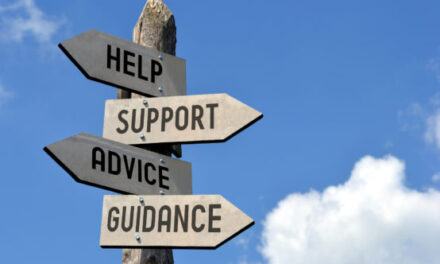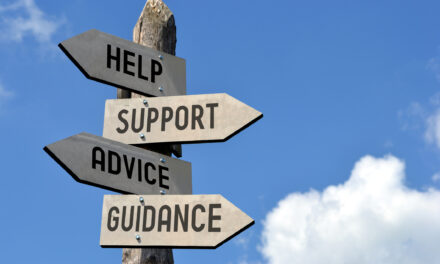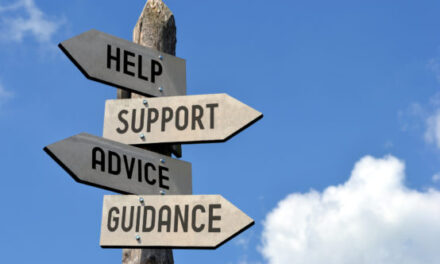Q: My relationship with the other teachers in my department is rocky and getting worse by the day. I know it’s my fault. I’m being an —hole. But I also know it’s a reaction to my department chair, Alan, who is a jerk to everyone. It brings out the worst in all of us, and we’re all stressed and snippy. None of us ever knows what mood he’ll be in, and we’re on edge all the time. It’s not really reportable or abusive behavior, it’s more that his personality really, really sucks, and he’s viciously sarcastic.
I know I can’t change Alan, and I’m not looking for advice on dealing with him. What I DO want is to figure out how to monitor myself before I alienate my entire department. Leaving for a new job isn’t an option for another year, minimum, for financial reasons. Any tips to help me keep myself in line and hate on everyone else a little less? My happiness set point is on the low end to begin with, and I’m not easy to deal with under the best of circumstances, so the combination of Alan and me is probably a nightmare for the other teachers in my department. I’m never going to be “Chipper Charlie,” but can you help me be a little less “Murderous Michael”? My colleagues thank you in advance.
A: The good news is that it’s easier to address your own incivility than to change an entire department’s culture. But since you’ve admitted to being roughly 50% of the problem, changing your behavior will improve the work environment for everyone — yourself included. You can turn this around!
I learned several things about you from reading your question. The first is that you’re reactive. You’re sensitive to triggers in your environment and struggle with impulse control. The second is that you’re self-aware and realistic. You don’t expect to magically transform into a delightful colleague, but you would like to keep your less-appealing traits in check. The third is that you don’t like feeling out of control or full of hate, and you want to be liked. My takeaway? You’re motivated to change, and even slight improvements in your relationships with others will keep you moving in the right direction. The challenge for you will be recognizing your problematic behaviors, avoiding your triggers and mastering enough self-regulation and interpersonal skills to shift the dynamic.
Let’s start with your own problematic behaviors. You’ve noted a few, including being snippy and feeling murderous. I’m not sure what that means, exactly, but I bet your colleagues do. Be open with them. Explain that you know you’ve been impossible and want to do better. If you’re up for a little external policing, ask them to call you out when you’re a jerk. And when you catch yourself acting up, apologize. Note your most common objectionable behaviors. Do you make snarky comments? Do you walk away from someone when you’re frustrated? Do you blame others for your mistakes? Shame or interrupt or scowl at people? Send nasty emails? You can’t stop problematic behaviors if you don’t know what they are.
Next, look at your triggers. Is it being in a room with Alan? Or merely thinking about him? Does his sarcasm put you over the edge? Does it make a difference whether it’s directed at you or someone else? Can you recognize in your body when you’re starting to feel agitated, whether you hold your breath, or your back stiffens? Try to recognize when you most need to press the pause button, whether you’re about to lose control with him or another colleague. If you’re less reactive, you’ll have less apologizing to do later, and you’ll feel better. Be mindful of your thoughts, too, which influence your feelings and behavior. Do you always assume others are criticizing you? Pull any extreme thoughts back to the middle and come up with a mantra you can repeat to keep perspective, such as, “I can do anything for a year,” or “No one can push my buttons if I don’t let them.”
The pause button can look different depending on the scenario. When you’re short with someone, you could be upfront and say, “I think I need to take a breath — can we finish this conversation a little later?” Or excuse yourself to get a drink of water. Or change the topic to something benign. To learn a broader repertoire of emotion regulation strategies, consider taking a yoga or mindfulness class. You’ll learn ways to turn off your amygdala — the part of the brain that sends the “fight or flight” signal. Add more self-care to your routine in general, whether you exercise more, see a therapist, call a friend, listen to music, pray, or paint. Make sure you eat well and get enough sleep.
It takes time to learn self-regulation skills, so in the meantime, set yourself up for success. Limit all interactions with Alan and avoid physical proximity as much as possible. When you do need to engage, do it in person. It’s harder to be rude to someone in person than over the phone or email. There’s also research suggesting that smiling makes you and everyone around you feel less angry, so be mindful of your facial expressions. To maintain momentum, surround yourself with positive influences — coworkers who make you feel relaxed and model professional, respectful, prosocial behavior. As your relationships improve, you’ll feel more in control. You may even find that your happiness set point goes up a few notches.
For more Career Confidential: http://bit.ly/2C1WQmw
Have a question that you’d like Career Confidential to answer? Email contactphyllisfagell@gmail.com. All names and schools will remain confidential. No identifying information will be included in the published questions and answers.
ABOUT THE AUTHOR

Phyllis L. Fagell
Phyllis L. Fagell is the school counselor at Landon School in Washington, D.C., a therapist at the Chrysalis Group in Bethesda, Md., and the author of the Career Confidential blog. She is also the author of Middle School Matters and Middle School Superpowers, available at https://amzn.to/3Pw0pcu.









